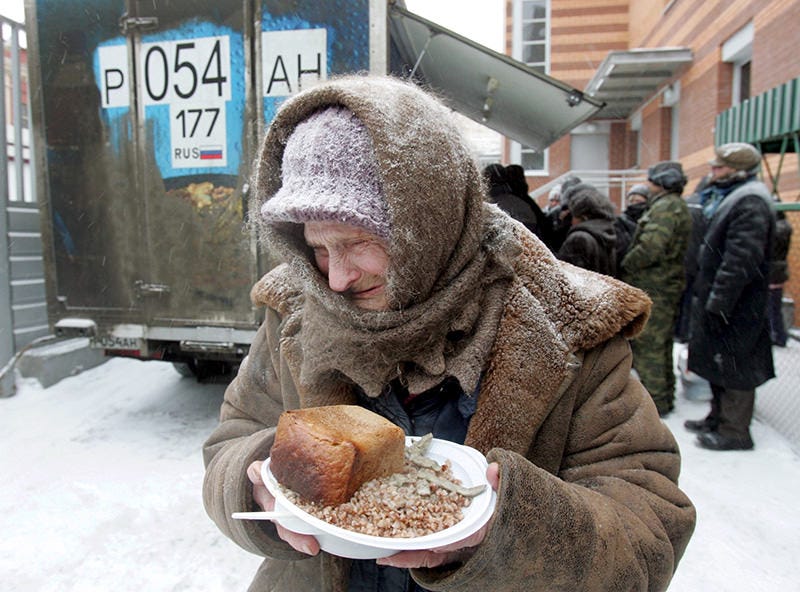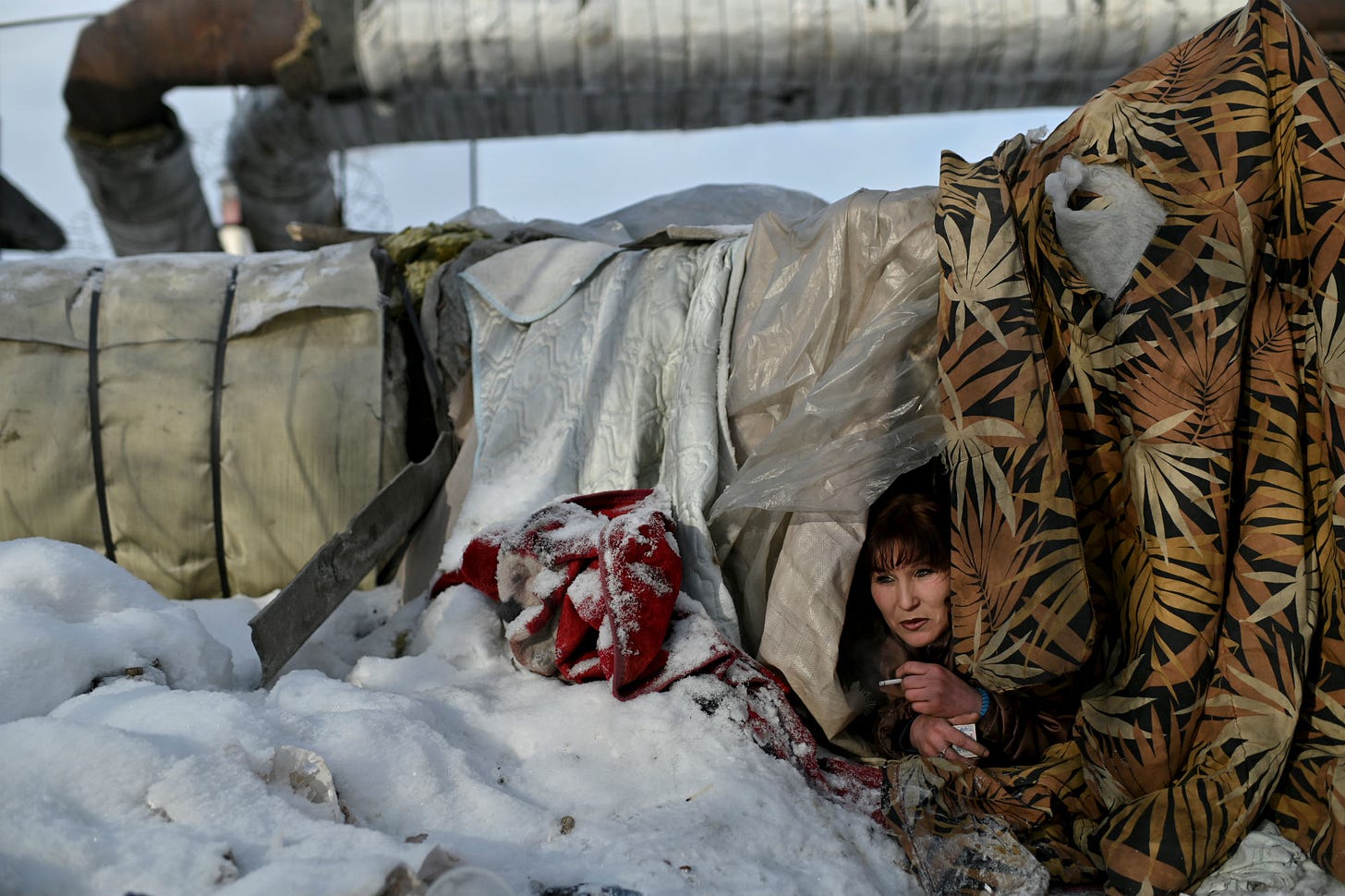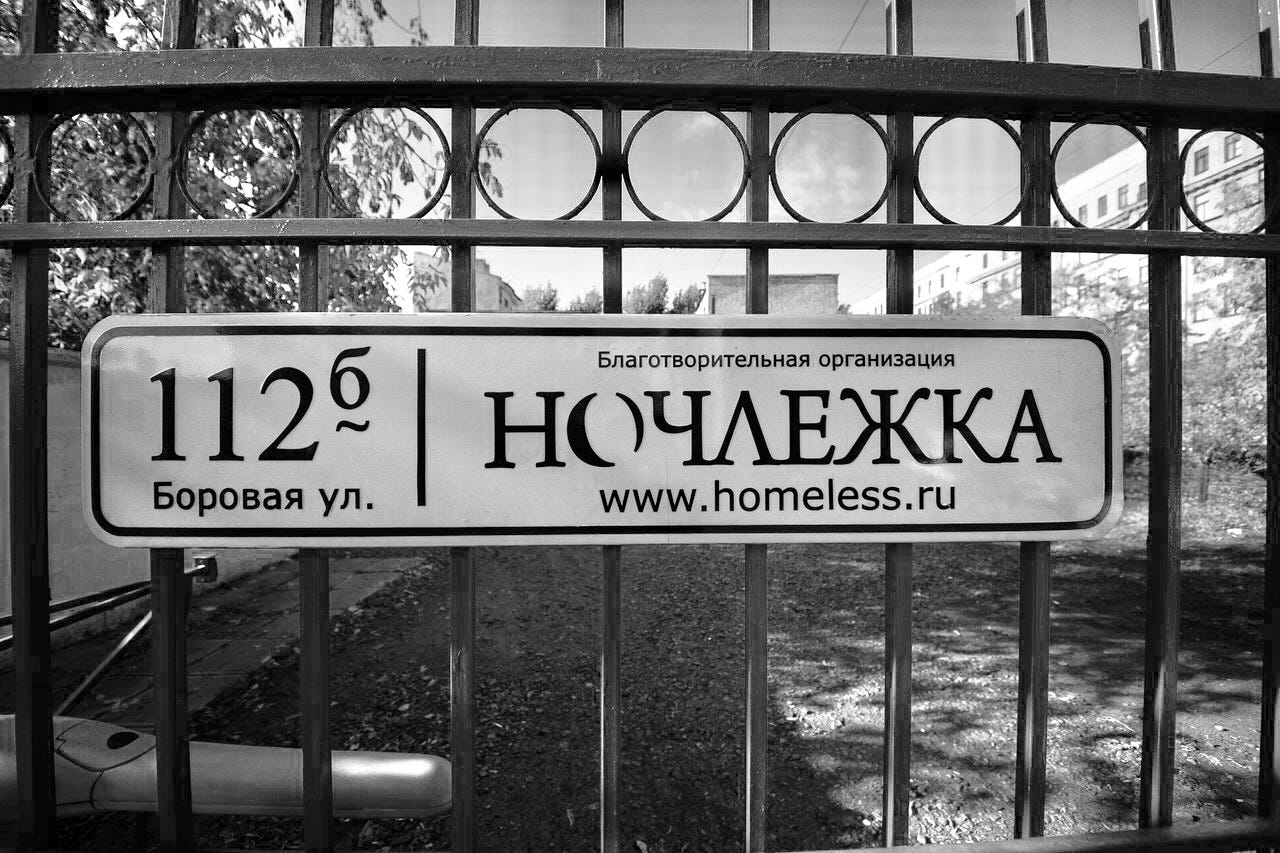Don’t Let Them Freeze to Death: Prompt Action Can Save Lives!
By Stephen Wilson, one of our reporters abroad
“Don't let them freeze to death! If you see a homeless person who needs help, phone 7{449} 375-01-80.” I discovered the posters showing a painted homeless person lying on the ground on public noticeboards around my courtyard in Moscow. The poster appeals for people not to remain indifferent but to either call an ambulance or the Center for Social Adaption E. Glinski, which assists the homeless by directing them to services or hospitals. That now you can spot posters appealing to the public not to remain indifferent to the plight of the homeless freezing from the cold at least represents an improvement in attitudes over the years. It is a far cry from the round up and deportation of the homeless by officials some 20 years ago.
The issue of the homeless being exposed to the harsh elements remains a perennial problem. Hundreds of the homeless die every year from hypothermia brought on by severe cold. That is not to mention some of the most appalling medical problems associated with the freezing cold. Around just over 20 years ago the medical journal “The Lancet” highlighted the appalling scenarios faced by the homeless in Moscow where they suffer from not only hypothermia, but severe frostbite where they can lose their limbs and become invalids.
What you'll notice if you view crowds lining up at soup kitchens in Moscow is how many invalids are conspicuous. Some of those people became homeless due to becoming invalids but others have become invalids due to the conditions of homelessness. For instance, there was the case of Alyona, a 35-year-old woman, who lost all her toes in her left foot due to frostbite.
Every year the ambulances pick up a few hundred corpses of people who have frozen to death in Moscow. Not all those people can be presumed to be homeless.
However, some people continue to claim that it is not the cold that kills the homeless but the drinking of alcohol which leads some of them to become drunk and fall straight down.
If that is really the case, why are the drinkers less likely to die in summer and why do you have so many cases of people succumbing to hypothermia without drinking?
There is no doubt that some of those deaths were avoidable if people passing by had been less indifferent and promptly intervened. The apathy or hostility of people to the homeless does not help matters. People can casually walk by a person thinking he or she is just sleeping. They might even be afraid to touch the homeless for all kinds of reasons. Maybe they feel they'll get an infection or the person might leap up and attack them. They can also presume “It's not my problem… Leave it to somebody else.”
What can be done to prevent needless illness and deaths from exposure? What do the homeless themselves do in Moscow or Saint Petersburg to avoid the cold? Well, they don't all drink alcohol to keep warm. I have often met people who when we were out walking the streets in cold weather suggested we drink vodka 'as a warmer.' That alcohol is viewed as a means of protecting your body from the cold is a commonly held belief in some quarters even though it weakens your immunity system. There are many sayings which refer to vodka as a useful medicine. Even non-drinkers can keep a bottle of vodka aside for use as a disinfectant or to alleviate toothaches.
But most of the homeless do what most people do: they keep out of the cold by finding a warmer place. You see many homeless people haunting the entrances of train stations, waiting rooms or just sitting on a seat on a metro train for hours on end. Practically every day I notice a homeless woman with 2 or 3 bags standing just at the entrance of a shopping mall. The homeless tend to find refuge hiding in basements, and underground sewage rooms and tunnels where the central heating warms them up.
Sometimes in the evenings, homeless people will secretly open a manhole and go down some steps into a dark, hot and filthy room where they sleep under hot pipes. But even this has drawbacks. One of my students noticed two men emerging from such a manhole in Moscow. They had been sleeping underground. He overheard one of his new companions warn him “If you continue to snore I'll cut your throat!”
It is worth noting that those people keep their sleeping abode secret lest the authorities move them on. All it takes is a local person in a building to take offence at the presence of a homeless person sleeping in their basement to call the police and they'll be immediately thrown back into the cold again. In shopping malls, libraries and stations the homeless can be driven out by security guards or shop assistants.
However, in the final analysis, a lot can depend on the people who encounter the homeless. Some allow them to stay in one place without driving them away. You have cases where the police help and assist the homeless by giving them helpful information, food and clothes.
A group of youth I met did not pass one person lying on the ground due to drink. They helped me take this person into the warm close of the building I lived in. They told me “If we don't get him to a warm place he 'll freeze to death.” My flagging belief in human decency was partially restored.
Local authorities and charities are at least attempting to get to grips with this problem. The local authorities in Moscow try to render assistance to the homeless through the use of mobile patrol services which cruise around the city keeping a sharp look out for any of the worst affected on the streets. They drive them to shelters where there is warmth. But there are problems with the shelters for homeless people. Some only provide accommodation if you can provide a passport or documents. But as in many countries, the homeless express an understandable reluctance to enter a shelter. They fear not only the presence of criminals but the risk of picking up an infection.
Homeless charities such as Nochlezhka provide heated tents for the homeless in Saint Petersburg. They provide two heated tents from October to April. According to Nochlezhka,
“This is a seasonal project. Our heated tents can accommodate 36-50 people each. Anyone can sleep in such a tent, protected from the cold, get a hot supper and breakfast, as well as medical aid from Blagotvorittelnaya Bolnitsa volunteer medics. People should not die from the cold on the streets and become disabled from frostbite. If a person has nowhere to go, they can come and stay in one of our heated tents, no certificates or papers required, have dinner and breakfast, receive medical care and primary social counselling.”
According to Anna Malina, a coordinator of the Heated Tents, “I find that the heated tents are the type of a low-threshold project which can become a lifeline for a person who has ended up on the street for one reason or another. Imagine you have nowhere to sleep but do not want to freeze to death either. You can come to this tent, warm up, steady your nerves and move on. It's a miracle.”
You'll meet all kinds of people staying at the Heating Tents in Saint Petersburg. They all have their own unique stories to tell. For instance, a 34-year-old homeless woman called Katya stated, “A few years ago I had a family incident. My step-father went after me sexually. My mum didn't take any measures. And so I said that it's me or him and she had to choose. And I left. I sleep at Nochlezhka's heated tents and when they are not open, the railway station. I am a smiling person, I often smile. For example, when my husband comes back from work. He's here with me, too . We're not married yet but we want to.”
Despite laudable efforts, the situation remains critical. You can never be complacent. Natalie Markova, who works for a charity called 'Friends of the Streets' stated, “The amount of deaths declined in general but even still, every spring we order a memorial service for those who perished in winter in the cathedral. There are no less than 50 to 80 names on the commemoration list every year.”
Charities such as Nochlezhka provide only two heating tents for the homeless—which represents a drop in the ocean when you reflect that there's an estimated 60,000 homeless in Saint Petersburg. It is evident that charities can feel overwhelmed with the frightening magnitude of the problem. We need a very bold radical shift where the state and the public intervene on a drastic scale. One wonders if even the creation of 50 heated tents would be that significant.
Still, any intervention to save lives is welcome. At least a person can save a life if he or she notices a homeless person lying out in the freezing cold simply by calling an ambulance.
We ought to be alert to what is going on around us on the streets. Paying proper attention can really help!
.
.
Acknowledged sources:
1. The annual reports of Nochlezhka 2020-2021 and 2022, see https://en.wikipedia.org/wiki/Nochlezhka and https://homeless.ru/en/.
2. “Homelessness and Hardship in Moscow,” by Nathan Ford, Nicholas Cantau and Heawige Jeannai, article in “The Lancet,” 2003.
3. Local Posters by the Center for Social Adaption, https://russiannewsonline.blogspot.com/2017/01/social-adaptation-center-for-homeless.html .





